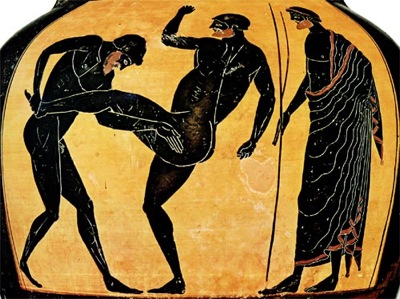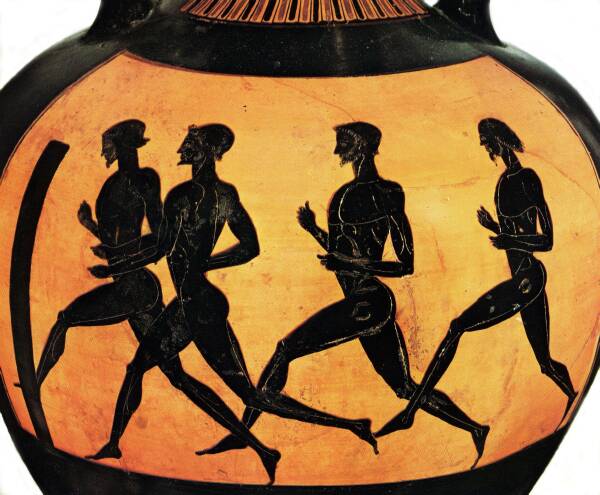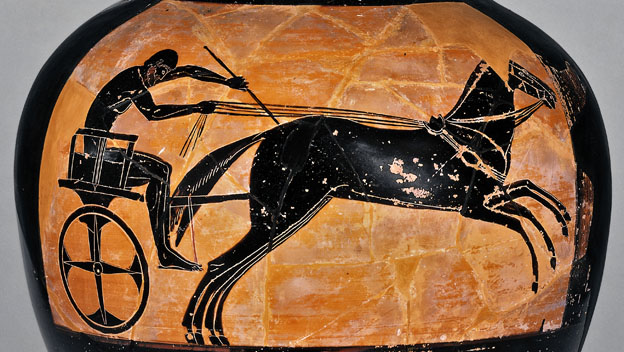Certainly the first known date (776 BC) games were historically the first. The principle of suspension of war for the duration of sports competitions connect historians with the names of the king of Elis Ifitosa king Lycurgus of Sparta and Cleisthenes the king of Pisa, who introduced the custom in the year 884 BC and illustrations at rediscovered in Olympia disk take us back even to 1580 BC
In the year 776 BC the games were well organized religio - sports venture, initially spanned one day. As time goes by, as a result of expansion of the amount of competition, the event extended to three days (14 games Olympics), to ultimately achieve a form of a five (of 78 Olympic Games, 468 BC).
Originally the Olympics involved only the state of the Peloponnese with the exception of Corinth, which prohibited the participation of its residents ! Only in the Olympics 12 Olympics athletes participated from outside the Peloponnese (the Athenians).
Over proper running of the event in Olympia watched the first period of the kings of Elis and Pisa. In the year 680 BC the organization of the Olympic Games have taken into their own hands and introduced Elejczycy hellanodikai office. Representatives from oldes families have been elected for these functions. In the mid- eighth century BC Olympic kings took over the supervision of Pisa, and since 580 BC returned to the joint board, with the kings of Elea.

The fullest flowering of the games reached during the Persian Wars (500 - 449 BC). Olympia was the authentic center panhelleńskim and played regularly every four years the Olympic Games have become a celebration of the Pan. A hundred years later, thanks to the aforementioned Timaeus, became the basis of measurement of time.
The power of the Olympic Games ended after defeat of the Greeks at the Battle of Cheronea (338 BC), when Greeks losed their independence. Greek states came under the rule of the Macedonian kings, and in the year 146 BC became part of the Roman Empire. Sports took the form of income over time and get more brutal form. However, the games were played still for hundreds of years, although their fall became inevitable.

In the course of fighting more and more accidents involving bribery. More and more were willing to sit in the stands and watching the competition, and it was increasingly difficult to attract new players.
In the year 86 BC Roman consul Lucius Cornelius Sulla plundered undefeated with accumulated treasures over the centuries, and ordered his team to come to Rome and honoring ceremonies dedicated to his person. In Olympia allowed to remain competitors drome, who alone could compete for Olympic wreaths.
In the third century of our era part of the building was demolished as a source of material for the construction of fortifications against the impending Heruldów tribes that here but ultimately did not make it. Buildings, which then lay in ruins, never regained its original form.
Olympics final blow aimed Emperor Theodosius I the Great, who in 393 AD issued a ban on the organization of the Games. Soon (395 r) made havoc of the Peloponnese Gothic tribes, while in another one of emperors 426 - Theodosius II ordered the burning of Altis as a place of pagan worship. A hundred years later, the remains were destroyed by the earthquake. For over 1000 years the Olympic idea was forgotten.
